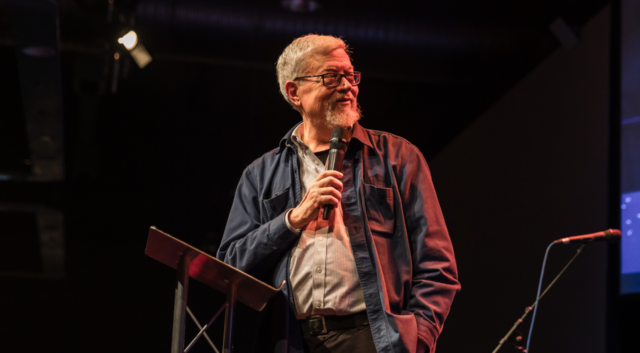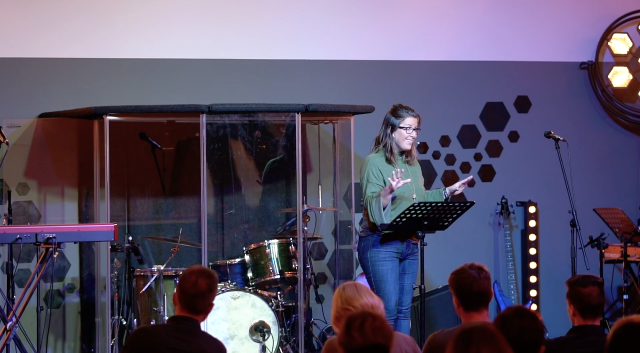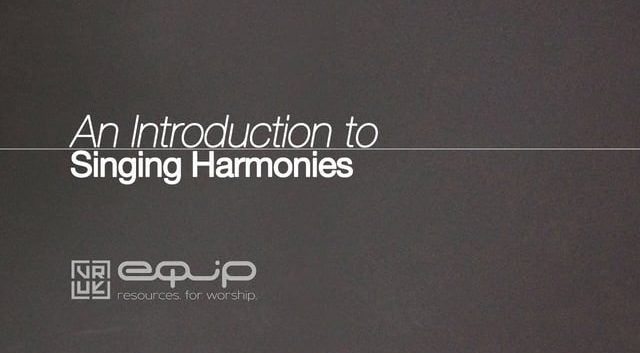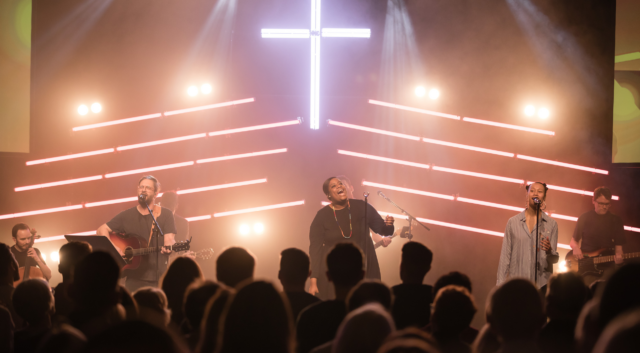This article was written by Jesse Duley, Worship Pastor at Kingdom Vineyard in St Andrews, and the Training Co-ordinator for Vineyard Worship UK & Ireland.
Ever since I first picked up a Bible (on May 13th, 1995), I have been completely enthralled by its content. Those squiggly lines of ink do something to me. In 2011 I picked up “How to Read the Bible for All Its Worth,”1 and this just increased my enthusiasm exponentially. In 2017 the University of St Andrews awarded me the degree of Master of Theology. As I write this, I’m learning biblical Greek as a prelude to starting another masters at Edinburgh University, focussing on languages and tools for reading the scriptures.
Oh, I’m also a worship leader.
So, of course, I’m going to be passionate about worship on the one hand, and Bible study on the other. And if you’ve read the title of this article, you know that I think these two things belong hand-in-hand. Now, of course, I don’t expect every worship leader to go into full-time education. But in so many respects, I’ve taken the easy path – because what I have made one of the main occupations of my life is actually the duty of anyone who would become a worship leader. Whatever else it is that you do – and I thank God for it – if you take on the role of worship leader, you also take on the responsibility to become a student of the word.
Why do I say duty, and responsibility? Well, this may come as a surprise to you, but if you are a worship leader, you are – like it or not – a teacher of theology. And you teach theology in one of the most subtle and formative ways known to humanity – through music and song. So you had better make sure your theology is in good shape, because the role of teacher in the church comes with a greater level of accountability:
Not many of you should become teachers, my brothers and sisters, for you know that we who teach will be judged with greater strictness. (James 3:1)
Now there’s a bible verse you’re unlikely to see on Instagram. This ought to be sobering, especially to those of us who move within the charismatic expressions of Christianity, where there is a subtle but undeniable culture of anti-intellectualism that constantly lurks and lingers. We value the direct revelation of God, through the Holy Spirit’s ministry. I have absolutely no desire to diminish this as an essential aspect of what I believe God did at Pentecost, for then and now. However, we need to remind ourselves of one of John Wimber’s most crucial contributions: the “radical middle” path between the experience of God (in the Holy Spirit) and the revelation of God (in the scriptures). This is Vineyard DNA.
In the Vineyard, we place great value in experiencing the presence of God. However, as I’ve written before2, the intimacy with God that we so desperately desire is an impossibility if only presence is considered. One can be present with a person without experiencing intimacy. The other side of intimacy is knowledge. True intimacy is to be with one whom I know and by whom I am known. This is part of what I believe Jesus meant when he told us that we would worship “in spirit and in truth” (John 4:24). Truth is more than knowledge, but without knowledge, truth evaporates into thin air.
Anyone reading the book of Revelation is confronted with an utterly bewildering array of sights and sounds, all of which John experienced “in the Spirit” (Rev 1:10). What you discover on closer examination is that the visions of Revelation were mediated through a man who was utterly saturated in the language and ideas of the holy scriptures. God uses our physical senses and our imaginations in order to speak to us; however, rather than dropping everything into an empty container, he tends to use the raw materials he finds there. What are we giving him to use? In John’s case, it was a mind swimming in the word.
Through the prophet Hosea, God indicts his people for their failure to steep themselves in his word:
My people are destroyed for lack of knowledge; because you have rejected knowledge, I reject you from being a priest to me (Hosea 4:6)
Elucidating this verse, Jeremy Riddle writes in his recent book “The Reset”:
The in-depth study of the word of God has been left to scholars and intellectuals, but it must be equally claimed by the artist, the musician, and the poet … We must leave the former days of biblical ignorance and academic laziness behind us and plunge ourselves into the word of God … It’s quite possible you are only in love with the idea of Him, and not who He really is.3
This last statement should really wake us up. It echoes the prayer that, in C.S. Lewis’ masterful work The Screwtape Letters, makes the distinction clear:
Not to what I think thou art but to what thou knowest thyself to be4
An idea Lewis explores in greater depth in A Grief Observed:
I need Christ, not something that resembles Him … Not my idea of God, but God.5
What difference does this make when it comes to worship leading? Riddle outlines the situation like this:
The question we need to ask ourselves is this: do we know God? Have we been spending time studying who He’s revealed Himself to be in His word, or have we simply been studying other people’s songs, books, and social media feeds? If our songwriting is any indication, we need to spend less time living vicariously through other people’s revelation and more time getting our own.6
If we continue to rely upon a vicarious revelation of God without paying attention to the gift of his revelation directly to us, through the scriptures, then we risk simply projecting our idea of God onto a screen, before which we bow and sing our songs. There is very little to distinguish this from the veneration paid to images carved in stone, metal and wood, which comes under a biblical category of activity that should strike fear into our bones: idolatry.
I believe we’re living in the midst of a movement of cultural tectonic plates, and as the earth shakes we need to hold on. We need to hold on to the promises of God, who has proven himself trustworthy; and we need to hold on to the presence of God – but not some composite of tweeted Bible verses and worship song lyrics; rather, the God who makes himself known through the holy Scriptures.
1 Gordon Fee and Douglas Stuart, How to Read the Bible for All Its Worth, 3rd ed. (Grand Rapids: Zondervan, 2003)
2 Jesse Duley and Tim Hendry, Worship Values (get a copy here)
3 Jeremy Riddle, The Reset: Returning to the Heart of Worship and a Life of Undivided Devotion (Anaheim: Wholehearted Publishing, 2020), 72.
4 C.S. Lewis, The Screwtape Letters (London: Harper Collins, 1942), 18.
5 C.S. Lewis, A Grief Observed (London: Faber and Faber, 1961), 55-56.
6 Riddle, The Reset, 70-71.









